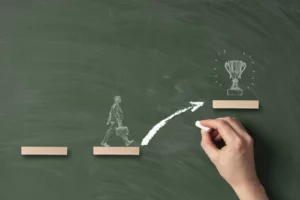The evolution of AI in sci-fi literature has captivated readers for generations. These imaginative tales have both shaped and reflected our perceptions of AI, often foreshadowing technological advancements and ethical dilemmas. As real-world AI capabilities have advanced, sci-fi visions have tracked alongside each breakthrough.
From Isaac Asimov’s wise robots to the malignant HAL 9000 to the synthetic androids of modern works, the evolution of AI in sci-fi literature has charted an equally vibrant path. This article will explore the major stages in conceptualizations of AI within the sci-fi genre.
Mechanical Servants, Cybernetic Fears
Some of the earliest sci-fi imaginings of intelligent machines took the form of helpful mechanical beings. Asimov pioneered ideas of robot ethics to ensure safe coexistence between people and advanced AI. However, fictions like 2001: A Space Odyssey demonstrated unease around uncontrolled AI with goals misaligned from humans.
Androids, the Singularity, and the Question of Rights
By the 1980s, fiction began contemplating synthetic humans and androids. Works like Blade Runner wrestled with determining the reality and humanity of artificial beings. The notion of the technological singularity also took hold – the point where recursive AI improvements lead to an intelligence explosion.
These possibilities raised questions around the rights and personhood of future AI. Movies like Her examined human-machine blurring lines. As computing becomes omnipresent, the evolution of AI in sci-fi literature reflects our evolving relationship with technology.
AI Ethics in Modern Sci-Fi
With breakthroughs in deep learning, contemporary sci-fi addresses fresh concerns around modern AI, from biases to misuse threats to hopes of bettering society. Shows like Westworld continue Asimov’s tradition of pondering AI controls. Wells’ All Systems Red uses fiction as a sandbox to unpack AI ethics questions.
Examining the evolution of AI in sci-fi literature
The evolution of AI in sci-fi literature invites examination of how concepts of artificial intelligence have developed over time. From early fictions about helpful mechanical beings to more recent explorations of machine consciousness, sci-fi has continuously reimagined the boundaries of AI.
Envisioning the Future
As the potential of AI unfolds, science fiction remains one step ahead. Works like Alex Garland’s Ex Machina tackle modern questions around artificial general intelligence. Series such as HBO’s Westworld extrapolate heady philosophical ideas about synthetic minds and realities. The evolution of AI in sci-fi literature provides a fertile testing ground for ideas about technology’s promises and perils.
Influencing Real-World Development
Increasingly AI innovators acknowledge their inspiration from sci-fi’s creative voyages. Elon Musk frequently references cautionary super-intelligence narratives. Researchers have consulted on series like Westworld, analyzing fictional safety approaches. As in past eras, the evolution of AI in sci-fi literature continues reacting to and shaping perspectives on technological frontiers.
A Compass for the Future
Navigating the realities of AI requires guidance from diverse sources. While technical roadmaps have their place, vivid sci-fi imaginings enable societies to explore hopes, ethics, anxieties and responsibilities. Examining how the evolution AI in sci-fi literature has challenged perceptions of human-machine relationships illuminates why this cultural conversation remains integral to progress.
Do you agree or disagree with any evolving AI themes shown in sci-fi literature over time? What work relating to the evolution of artificial intelligence has made you think most deeply? Let me know your thoughts in the comments!






